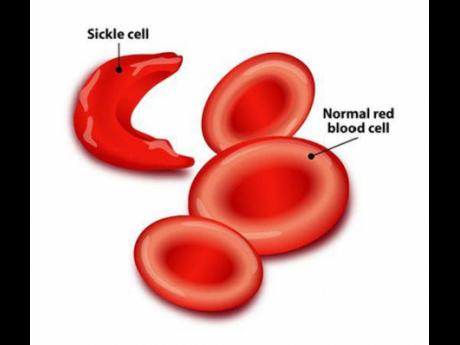Near 5,000 kids targeted for sickle-cell testing
The Ministry of Health and Wellness is confirming that 4,838 babies were not screened for sickle-cell disease last year, as public hospitals were faced with the challenge of inadequate supplies to test for the blood disease because of inconsistent government funding.
The issue was first brought to the public’s attention in a Sunday Gleaner article earlier this year, but at that time, while noting that it was aware of and would be looking into the issue, the ministry was not able to provide data indicating how many children were affected.
The babies who were not screened for the disease accounts for 15 per cent of live births in 2018.
A response from the Family Health Unit of the ministry to The Sunday Gleaner stated that plans are now in place to ensure that the babies born during that period who were not screened be given an opportunity to do so.
“The names of these babies are being collated and each parish is being given a list of name. Tests for sickle-cell are conducted at the time of baby’s visit to the child clinic. In addition, the babies who were not initially tested for sickle-cell disease are actively sought by the community health aides in the relevant health districts,” said the ministry.
Adequate testing supplies
The ministry added that it now has adequate supplies to stop the issue from reoccurring.
“There are now adequate cards available; approximately 40,000 cards were ordered annually for approximately 34,000 babies delivered,” said the ministry.
Another concern was that parents of children with the sickle-cell trait were not being informed of their status after the test was done.
“These persons will be given a status card indicating the genotype of the sickle test result; also, if there is need for a confirmatory test, this will be indicated on the card,” said the ministry.
Camille Daley, president of the Sickle Cell Support Foundation of Jamaica, had expressed concerned that she was worried for those infants and parents who were not screened as the greatest chance of survival is best when the child is tested at birth, as death was more likely in the first five years of life.
“I am glad that they are trying to track down the babies. I hope that they will continue until they have found all those who were not screened,” said Daley.
She is encouraging parents who fall within that time frame, and even those who might have missed it for whatever reason this year, to work along with the authorities to get the test done.
“If they were recently born and the baby is still under the government neonatal and post-natal care, then they must go back to where the child was born and say ‘we weren’t screened, can you take the blood and check for sickle cell electrophoresis’.
“Even if you have a child of, say 10, you should still take them to a lab and get the test done, because everybody needs to know their genotype, because the child may have a trait and that means that when the child grows up, they could have a child with sickle-cell so everybody should be tested,” said Daley.
Sickle Cell facts
**Sickle-cell disease (SCD) is an inherited blood disorder in which there is not enough healthy red blood cells to carry adequate amounts of oxygen throughout the body.
***Common symptoms include excruciating pain, jaundice, leg ulcers and low energy.
**One in every 150 babies born in Jamaica is estimated to have sickle-cell disease
**One in every 10 persons is a carrier of the sickle-cell trait in Jamaica.

